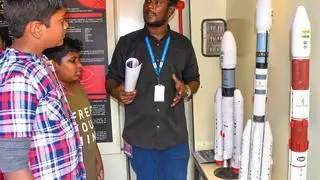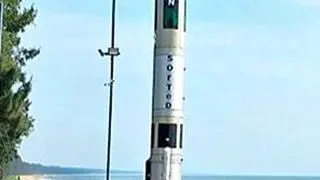India, the ‘vaccine capital’ of the world (despite the current shortage in Covid-19 shots), can become a global leader in another product: Monoclonal antibodies. The pandemic has thrust India onto the launch pad for a leadership position in products such as ventilators and oxygen concentrators. Monoclonal antibodies (mAb) join the list.
Monoclonal antibodies, as a class of medicines, are gaining ground the world over. Recently, the US Food and Drug Administration approved its 100th mAb. Today, mAbs account for a fifth of all new drug approvals of the FDA.
In India, mAbs have been pushed into common discourse by the pandemic, and people have become familiar with names such as Tocilizumab, Itolizumab, Casirivimab and Imdevimab. Earlier, only doctors knew these names.
What are monoclonal antibodies? We know that antibodies are substances (Y-shaped proteins) that are produced by our body’s immune system, which destroy invading pathogens. Monoclonal antibodies are antibodies produced in labs, using living cells. These drugs therefore come under the head ‘biologics’, which are drugs produced exclusively from living organisms. They could also be ‘biosimilars’— biologics that are ‘similar’ to another ‘reference’ biologic medicine.
By all accounts, manufacturing mAbs is difficult, because these are very complex molecules. A regular medicine molecule may have about 20-25 atoms; an mAb has about 25,000 atoms, says Roche, the Swiss company which funded the Basel Institute of Immunology, whose scientists Georges Köhler and César Milstein developed a process to produce mAbs and went on to win the Nobel prize in 1984.
Covid-19 and mAb
Doctors have been trying out mAbs for treating Covid-19; that is how they have become part of the pandemic narrative. However, these are used in some specific cases of infections. The mAbs don’t kill the viruses, but come in handy when the body’s immune system over-reacts and produces a profusion of antibodies — called cytokine storm — which may result in the antibodies attacking the healthy cells (auto immune). Dr R Narasimhan, a pulmonologist and chairman of the Chennai-based Respiratory Research Foundation of India, says he uses mAbs to treat severe Covid-19 cases, to bring down the extent of the infection.
In India, Roche’s Tocilizumab (distributed by Cipla) is a leading drug, but there are others in the fray too. Biocon is ramping up its Itolizumab production because of the growing demand. Earlier this month, India’s Central Drugs Standards Control Organisation gave the ‘emergency use authorisation’ for a cocktail of two antibodies — Roche’s Casirivimab and Imdevimab. This cocktail, Roche said, “can play a role in the fight against Covid-19 and in treatment of high-risk patients before their condition worsens.”
The relevance of mAbs to Covid-19 is still unclear. Many, such as Narasimhan and Dr Sridhar Nagaiyan, a critical care specialist who treats Covid-19 patients at the Kauvery hospital, Chennai, say mAbs are useful in a small sliver of cases. On the other hand, drug makers such as Biocon are bullish about them. GAVI, the global vaccine alliance, says that some 70 mAbs are under development for Covid-19 treatment.
However, what is not disputed is that mAbs are a class of fast-growing drugs. In 2019, seven of the top ten best selling drugs were mAbs. In February, a research report of Researchandmarkets.com said the market for mAbs would reach $161.7 billion by 2024, growing at a CAGR of 7.21 per cent between 2020 and 2024.
That is the market that India can capture. Dr Sandeep Athalye, Chief Medical Officer, Biocon, sees a “big role” for Indian companies in mAbs.
Some illustrative numbers, cited by GAVI, explain why. Canmab, a biosimilar version of the breast cancer drug Herceptin, sells for $100-200 a dose in India; in the US, a dose costs $1,800. GAVI also notes that India stands out among low- and middle-income countries because of its local manufacturing capacity, with about a hundred companies that produce biosimilar products.








Comments
Comments have to be in English, and in full sentences. They cannot be abusive or personal. Please abide by our community guidelines for posting your comments.
We have migrated to a new commenting platform. If you are already a registered user of TheHindu Businessline and logged in, you may continue to engage with our articles. If you do not have an account please register and login to post comments. Users can access their older comments by logging into their accounts on Vuukle.